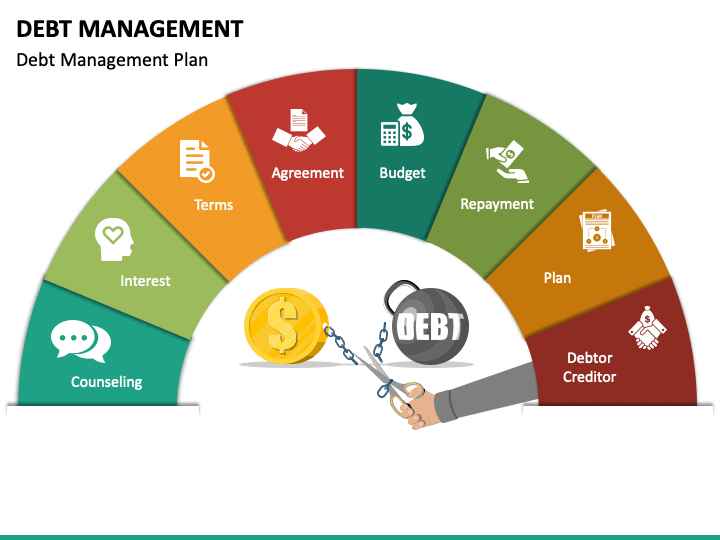Exactly How Debt Management Plan Services Supply Tailored Solutions for Financial Wellness
Exactly How Debt Management Plan Services Supply Tailored Solutions for Financial Wellness
Blog Article
Specialist Tips and Approaches for Carrying Out an Effective Financial Obligation Monitoring Strategy
When it pertains to navigating the intricacies of financial obligation management, having a well-balanced strategy is essential for achieving economic stability. Executing expert ideas and methods can make a significant distinction in your journey in the direction of debt alleviation. From assessing your present economic standing to negotiating with lenders, each step plays a crucial function in forming a successful financial obligation management plan. By recognizing the complexities of financial debt management and embracing tried and tested strategies, individuals can lead the way for a more safe financial future.
Examining Your Present Financial Circumstance
Prior to embarking on a financial debt administration plan, it is crucial to extensively evaluate your existing financial standing. Recognizing your financial scenario is the foundational action towards successfully managing and lowering your financial obligation.

Creating a Realistic Budget
Understanding your existing financial circumstance prepares for creating a reasonable budget plan that straightens with your debt administration objectives and economic capacities. When producing a spending plan, it's essential to precisely track your earnings, expenditures, and financial debt commitments. Beginning by listing all income sources, consisting of wages, incentives, and any kind of added revenues. Next off, detail your dealt with expenses such as rent or home mortgage payments, utilities, insurance policy, and loan repayments. Variable expenditures like grocery stores, amusement, and transport ought to also be accounted for. By classifying your expenditures, you can recognize locations where you might need to reduce back to liberate funds for financial debt repayment.

Focusing On and Tackling Financial Obligations
To successfully gain back control of your financial resources and job towards monetary stability, focusing on and tackling your financial debts is a vital action in your financial obligation management strategy. Recognize high-interest financial obligations that are costing you the most money and focus on paying them off.
After recognizing your high-interest financial obligations, consider using approaches like the debt snowball or financial obligation avalanche approach to pay them off systematically. The financial debt snowball approach involves paying off the tiniest financial obligations first, while the financial obligation avalanche method prioritizes financial obligations with the highest passion prices. Choose the technique that lines up best with your economic goals and inspires you to keep making development.
Furthermore, think about official website negotiating with lenders for lower rates of interest or establishing a settlement plan if you're having a hard time to fulfill your existing obligations. Looking for support from a debt counselor or monetary advisor can also give important insights and advice on how to properly tackle your debts - debt management plan services. By prioritizing and resolving your financial debts strategically, you can lead the way in the direction of a debt-free future and improved financial wellness
Negotiating With Lenders
When involving in financial obligation management, negotiating with creditors is a vital step towards finding equally valuable remedies for financial debt payment. Before launching arrangements, it is necessary to have a clear understanding of your monetary situation, including your income, expenses, and the complete quantity of debt owed.

Structure Healthy And Balanced Financial Routines
Incorporating constant budgeting methods is vital for growing healthy and balanced financial routines. Budgeting permits individuals to track their earnings and expenditures, allowing them to make informed choices concerning their financial concerns. Establishing specific monetary objectives, such as conserving for emergency situations or retirement, can supply a clear roadmap for taking care of cash effectively.
One more secret facet of structure healthy and balanced financial routines is living within one's methods. This involves spending less than what is made and preventing unneeded financial debt. Differentiating and embracing a thrifty mindset between wants and needs can assist individuals make more sensible spending choices.
Frequently examining monetary declarations and monitoring debt reports are important habits that advertise economic awareness and responsibility. By remaining notified regarding their financial standing, people can recognize prospective problems at an early stage and take proactive steps to resolve them.
Moreover, establishing a financial savings routine, even with small quantities, can contribute considerably to long-term economic safety. Saving frequently not only constructs a monetary cushion for unforeseen expenses yet likewise fosters a feeling of discipline and duty towards finance. By constantly practicing these behaviors, individuals can lay a solid foundation for a secure monetary future.
Verdict
Finally, implementing an effective debt monitoring plan calls for a complete evaluation of one's financial scenario, the development of a sensible budget, prioritizing and taking on financial obligations, bargaining with creditors, and useful content structure healthy monetary habits (debt management plan services). By following these professional pointers and techniques, people can take control of their funds and work towards attaining economic stability and flexibility from financial debt
Comprehending your existing monetary circumstance lays the groundwork for developing a practical budget plan that lines up with your debt management objectives and economic capacities.To properly reclaim control of your funds and work towards financial security, focusing on and tackling your financial obligations is an essential step in your financial obligation administration plan.After determining your high-interest financial debts, take into consideration making use of strategies like the debt snowball or debt avalanche method to pay them off systematically. The debt snowball method involves paying off the tiniest debts first, while the financial debt avalanche method prioritizes financial obligations with the greatest interest rates.When involving in financial debt monitoring, bargaining with financial institutions is a critical action in the direction of finding equally valuable options for next page financial obligation payment.
Report this page